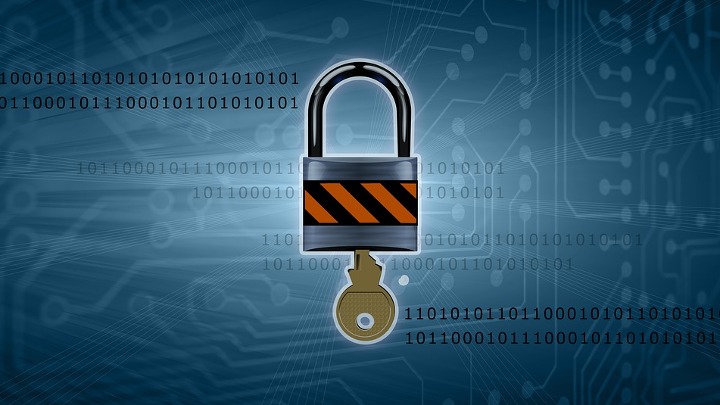ZONAUTARA.com – In today’s digital landscape, small businesses are increasingly vulnerable to cyber attacks and data breaches. These incidents can lead to financial losses, reputational damage, and legal liabilities. As a result, the importance of cyber insurance for small businesses in the United States has grown significantly.
This article will delve into the increasing necessity of cyber insurance for small businesses, available coverage options, and tips for selecting the right policy to safeguard your enterprise.
The Growing Importance of Cyber Insurance for Small Businesses
As technology advances and businesses become more interconnected, the risk of cyber attacks has risen dramatically. Small businesses, in particular, are attractive targets for hackers, as they often lack the resources and expertise to implement robust security measures. Research has shown that over 50% of small businesses in the United States have experienced a cyber attack or data breach.
Moreover, the financial impact of these incidents can be crippling. According to a report by the Ponemon Institute, the average cost of a data breach for small businesses in the United States is $3.86 million.
These costs include lost business, damage to the company’s reputation, and legal expenses. Considering these potential consequences, it’s no wonder that cyber insurance has become an essential component of a comprehensive risk management strategy for small businesses.
Available Cyber Insurance Coverage Options
Cyber insurance policies for small businesses typically offer coverage for a variety of scenarios, including:
1. Data Breach Response: Covers the costs associated with responding to a data breach, such as notifying affected individuals, providing credit monitoring services, and hiring public relations firms to manage the company’s reputation.
2. Business Interruption: Reimburses lost income and extra expenses incurred if a cyber attack causes the business to halt operations temporarily.
3. Cyber Extortion: Covers the costs of responding to a ransomware attack or other cyber extortion attempts, including the payment of ransom demands, if deemed necessary.
4. Network Security Liability: Protects against claims resulting from unauthorized access to the business’s computer systems, the transmission of malware, or other cyber-related events.
5. Privacy Liability: Covers the costs of defending against claims related to the unauthorized disclosure of sensitive information or violations of privacy regulations.
6. Media Liability: Provides coverage for claims arising from alleged defamation, copyright infringement, or other media-related liabilities resulting from the business’s online activities.
7. Cyber Crime: Protects against losses resulting from fraudulent electronic transactions, social engineering attacks, and other cyber crimes.
Tips for Selecting the Right Policy
When choosing a cyber insurance policy, small business owners should consider the following tips:
1. Assess Your Risks: Evaluate your business’s specific risks, such as the type and amount of sensitive data stored, the likelihood of a cyber attack, and the potential consequences of a breach.
2. Compare Policies: Research and compare different cyber insurance policies to determine which one offers the most comprehensive coverage for your unique needs.
3. Check Policy Limits and Deductibles: Make sure the policy limits and deductibles are appropriate for your business, taking into account the potential costs of a cyber incident.
4. Look for Customizable Coverage: Seek out policies that allow you to customize your coverage, as your business’s risk profile may change over time.
5. Consult with an Insurance Agent or Broker: Work with an experienced insurance agent or broker who can help you navigate the complex world of cyber insurance and find the best policy for your business.
6. Review and Update Regularly: As technology and cyber threats evolve, it’s essential to review and update your cyber insurance policy regularly to ensure adequate protection.
Conclusion
Cyber insurance has become a crucial component of risk management for small businesses in the United States, as cyber attacks and data breaches continue to pose significant threats. By understanding the different coverage options available and following the tips outlined in this article, small business owners can make informed decisions to protect their enterprises from potential financial and reputational damage caused by cyber incidents.
In addition to securing cyber insurance, small businesses should also invest in cybersecurity best practices. This includes regular employee training, implementing strong passwords and multi-factor authentication, installing security software, and keeping systems up to date with the latest patches.
Finally, it’s important to remember that no business is immune to cyber threats. By being proactive in addressing cybersecurity risks and obtaining a comprehensive cyber insurance policy, small businesses can better prepare for and respond to these challenges, minimizing the potential impact on their operations and bottom line.
In conclusion, the growing importance of cyber insurance for small businesses in the United States cannot be overstated. As cyber attacks become more sophisticated and prevalent, having the right insurance coverage can mean the difference between a minor setback and a devastating loss.
By carefully considering their risks, comparing policies, and working with experienced professionals, small business owners can secure the best possible protection for their companies, ensuring a safer and more resilient future in the digital age.









